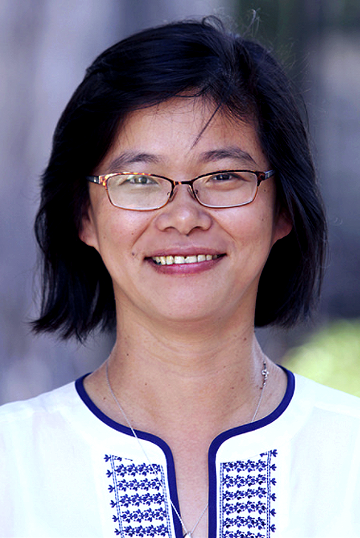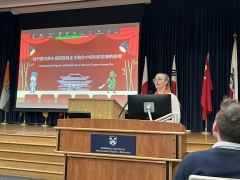Multilingual Event Puts Students to the Test in Japanese and Chinese
| by Sierra Abukins
The 30th annual event allowed students studying foreign languages to practice their presentation skills while interpretation students practiced simultaneous interpreting.




